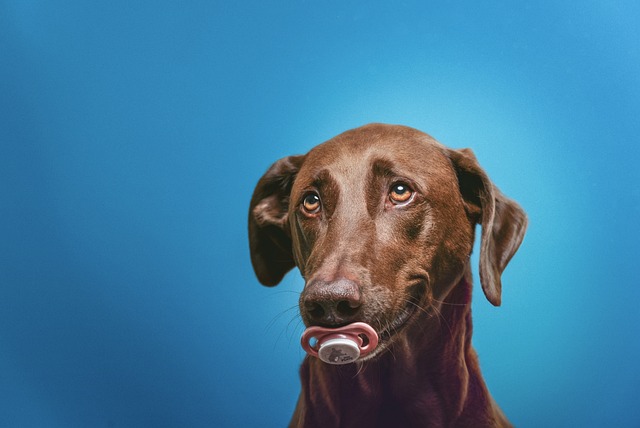
What is glaucoma in a dog?
You might notice your dog squinting more at mealtime or avoiding bright sunlight—these small changes could be early signs of a serious eye condition.
When we watch dogs jumping and wagging their tails to welcome us home every day, they are like little suns, bringing endless warmth and joy to our lives. However, there may be many unexpected situations regarding the health of dogs. For example, have you ever thought that dogs will get diabetes? This disease, which was originally widely concerned in the field of human health, actually threatens the health of dogs.
Diabetes is a metabolic disease caused by insufficient insulin secretion or poor insulin function. Insulin is like a "key" in the body, responsible for opening the "door" of cells, allowing glucose in the blood to enter the cells and provide energy for the body. When a dog suffers from diabetes, the "key" of insulin has a problem. Glucose cannot enter the cells normally, and will accumulate in the blood, leading to increased blood sugar.
There are many reasons for dogs suffering from diabetes. Genetic factors play an important role in it. Some breeds of dogs, such as the mini schnauzer, the poodle, and the beagle, have a relatively high risk of diabetes. If the dog's immediate family members have diabetes, the dog's risk of diabetes will also increase. Just as there is a genetic history in the human family, dogs can also be influenced by genetic factors.
Obesity is also one of the important factors leading to diabetes in dogs. Nowadays, many dogs have become "fat and strong" under the love of their owners. Overfeeding and lack of exercise lead to excessive fat accumulation in dogs' bodies. Obesity will reduce the sensitivity of dogs to insulin, and insulin will not function normally, which will lead to diabetes. Watching the cute appearance of dogs, we can't help but feed them more snacks, but it may inadvertently lay hidden dangers to their health. This makes us need to feed our dogs more scientifically while loving them.
Hormone imbalance may also cause diabetes in dogs. For example, pancreatic diseases in dogs may affect insulin secretion. Endocrine diseases such as hyperthyroidism and Cushing's syndrome may interfere with the normal metabolism of the body and increase the risk of diabetes. When these hormone disorders occur in the dog's body, it is like a precision instrument part has failed, diabetes may take advantage of the situation.

Dogs suffering from diabetes will have a series of obvious symptoms. Drinking and urinating frequently is the most common manifestation. Dogs will drink water frequently and their frequency of urination will also increase significantly. This is because excessive glucose in the blood can cause the kidneys to filter more water to eliminate excess sugar. If we find that a dog's water bowl always gets empty quickly and there are more urine stains at home, we need to be more vigilant. Weight changes are also an important signal, and some dogs may gradually lose weight while their appetite is normal or even increasing. This is because the body cannot effectively utilize glucose and can only break down fat and protein to provide energy. In addition, dogs may also experience symptoms such as mental fatigue, decreased vision, and skin infections. Watching the once lively dog become listless, our hearts are filled with heartache.
If you suspect your dog has diabetes, you must take it to the pet hospital in time. Veterinarians will diagnose through professional methods such as blood tests and urine tests. Blood tests can measure indicators such as blood sugar and glycated hemoglobin in dogs, while urine tests can detect urine sugar levels. Only accurate diagnosis can develop effective treatment plans.
At present, the treatment of dog diabetes is mainly insulin injection. Based on factors such as the weight and blood sugar level of the dog, the veterinarian will determine the appropriate insulin dosage. Injecting insulin into a dog on time every day is like injecting it with a healthy 'vitality agent'. Meanwhile, dietary management is also crucial. To provide dogs with low sugar, high fiber food, control food intake, and avoid excessive obesity. Regularly take your dog to the hospital for follow-up check ups, adjust insulin dosage and treatment plan to ensure effective control of your dog's condition.
Dogs also get diabetes, which makes us realize that the health of dogs needs our constant attention. Every careful observation, every time we take it to the hospital for examination, every time we inject it with insulin on time, is our deep love for the dog. Let us use scientific knowledge and full love to protect the health of dogs and accompany them through every beautiful day. In the future, when we see dogs playing happily again, we will be pleased to know that our efforts and sacrifices are worth it.

You might notice your dog squinting more at mealtime or avoiding bright sunlight—these small changes could be early signs of a serious eye condition.

Let’s set the scene: It’s a sweltering Phoenix afternoon—105°F outside—and you rushed your 2-year-old Lab mix, Cooper, on a quick walk to “get it over with.”

Let’s get real: You’re in your Miami apartment, watching your 3-year-old Corgi, Loki, struggle to climb the stairs to your second-floor unit.

Many dog owners brush off occasional scratching as just “dog behavior,” but persistent itching often signals something more—like a food allergy.

You might first notice your dog scratching more than usual—chewing at their paws until the fur looks thin, or rubbing their face against the couch nonstop.

Let’s be real: You’re standing in your Chicago apartment, watching your 3-year-old Beagle, Max, huff and puff just to climb onto the couch.